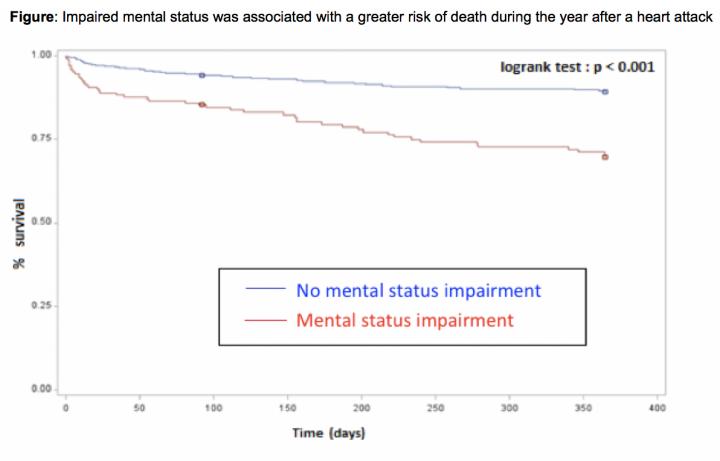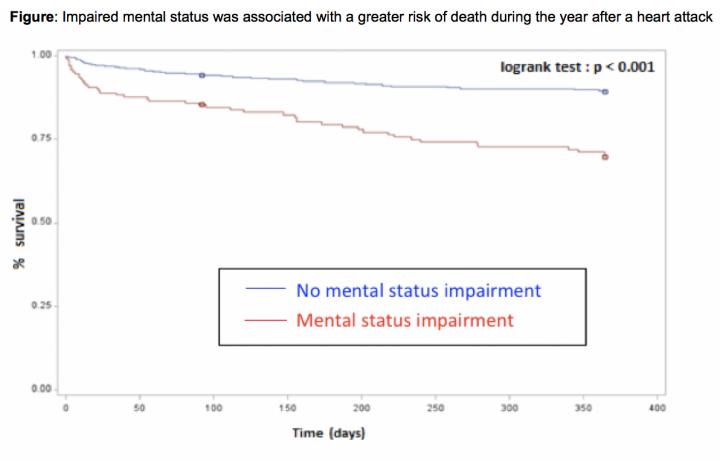
Credit: European Society of Cardiology
Munich, Germany – 26 Aug 2018: Impaired mental status is associated with a doubled risk of death one year after a heart attack in elderly patients, according to research presented today at ESC Congress 2018.1
"Cardiologists should consider conducting simple tests to assess mental status in elderly people after a heart attack," said study author Professor Farzin Beygui of Caen University Hospital, France. "Patients with reduced mental status can then receive more intensive management such as regular follow-up appointments with their general practitioners or nurses, more specific assessment for an early diagnosis of dementia and tailored therapy."
The risks of dementia, Alzheimer's disease, confusion and delirium increase with age. Elderly people are also at higher risk of having a heart attack and dying afterwards. People aged 75 and over account for approximately a third of heart attack admissions and more than half of those dying in hospital after admission for a heart attack. Until now it was not known whether impaired mental status affects the prognosis of elderly heart attack patients.
This study assessed the impact of mental status on the risk of death in 600 patients aged 75 and above consecutively admitted for heart attack and followed-up for at least one year. Mental status was assessed using the Mini-Mental State Examination (MMSE) and the Confusion Assessment Method (CAM) – both simple bedside tests routinely used in clinical practice.
Cognitive impairment was detected in 174 (29%) patients. Patients with impaired mental function were more than twice as likely to be dead one year after their heart attack than those with healthy mental function (see figure). The association was independent of other potential predictors of death such as age, sex, invasive treatment, type of myocardial infarction, heart failure, and severity of the heart attack.
Impaired mental status was also associated with a nearly four-fold higher rate of bleeding complications while in hospital and a more than two-fold higher risk of being readmitted to hospital for cardiovascular causes within three months after discharge.
Professor Beygui said: "Almost one-third of elderly heart attack patients in our study had reduced mental capacity. These patients had higher risks of bleeding, rehospitalisation, and death. This may be because they forget to take their medicines or take them more than prescribed, rather than because of poor cognitive function itself."
He concluded: "Assessing mental status is a simple way to identify elderly patients at particularly high risk of poor outcomes following a heart attack. Identifying these patients may help us target treatment to those who need it most."
###
Figure: Impaired mental status was associated with a greater risk of death during the year after a heart attack
Media Contact
ESC Press Office
[email protected]
@escardio
http://www.escardio.org




